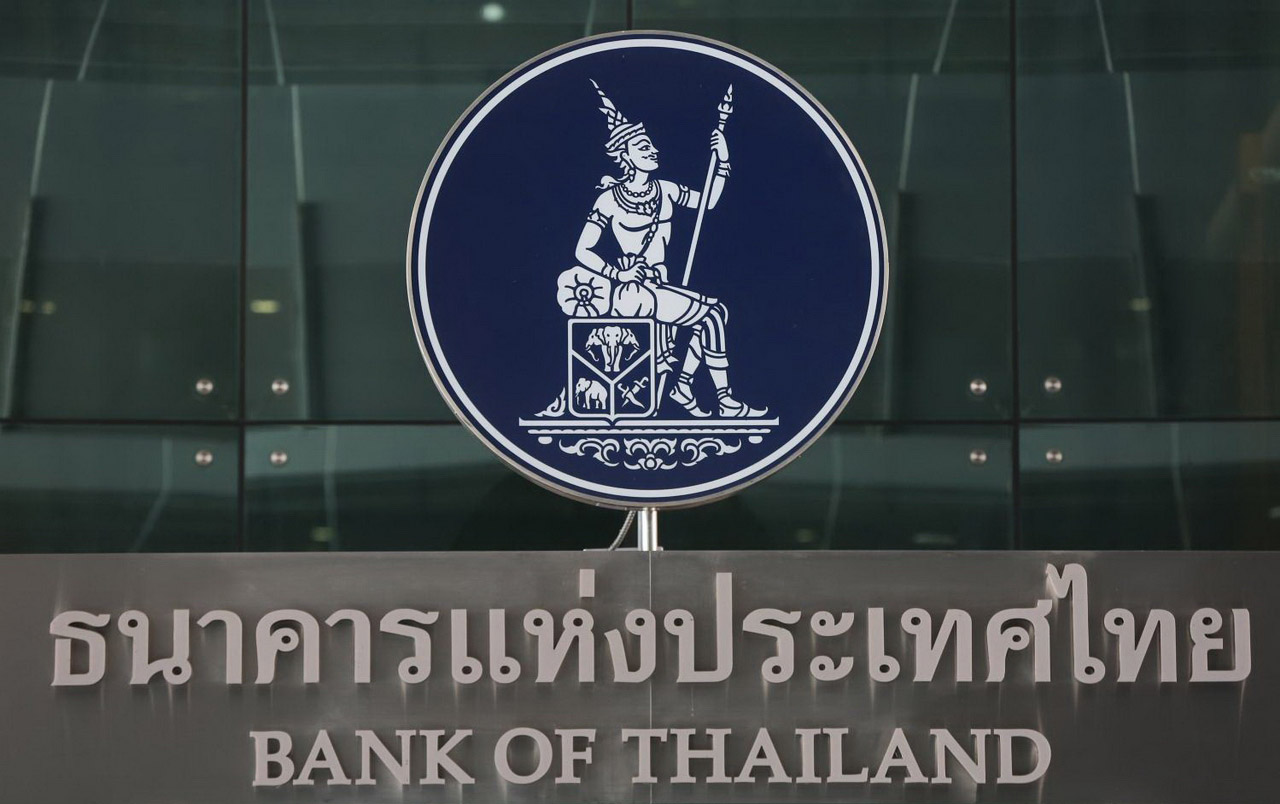
TEL +66-2-009-5000 Ext. 3108
joseph.t@mhm-global.com

TEL +66-2-009-5000 Ext. 3108
tip-apa.l@mhm-global.com

TEL +66-2-009-5000 Ext. 3103
chotiwut.s@mhm-global.com

TEL +66-2-009-5000 Ext. 3108
disaporn.s@mhm-global.com

TEL +66-2-009-5000 Ext. 3104
suphachok.s@mhm-global.com
The Covid-19 pandemic has had a significant and unprecedented impact on businesses around the world, especially the airline industry. Businesses in Thailand, even large state-owned enterprises, have not been immune to the effects of the pandemic or the resulting restrictions on movements of goods and people. As a result, news articles covering the potential insolvency of Thai Airways International Public Company Limited (“THAI”) have been appearing with increasing frequency, with several publications indicating that THAI will soon be entering into the rehabilitation process, an insolvency proceeding under Thailand’s bankruptcy laws.
THAI has sustained a net loss of THB 11.6 billion in 2018 and THB 12 billion in 2019, and has total debt of approximately THB 240 billion. Although there was a proposal for a THB 50 billion bailout loan from the Government, it remains unclear whether this proposal will be approved, can be implemented, and on what conditions. Another option discussed would be to have THAI’s capital structure and various businesses hived off and restructured as part of a court supervised rehabilitation plan, following which THAI would emerge in a healthier and viable financial condition.
Lenders, lessors or creditors to THAI should have an understanding of how rehabilitation works generally and analyze the practical considerations with respect to their indebtedness. We set out below a brief summary of the rehabilitation proceedings as well as key milestones/features under the Bankruptcy Act 1940 (B.E. 2483) (as amended) (the “Bankruptcy Act”).
Readers should note that the following does not constitute legal advice and should consult with their legal advisors for any issues or matters relevant to them.
Rehabilitation Proceedings:
- Initiation of the proceedings
Rehabilitation proceedings can be initiated in Thailand by a debtor, a creditor or a relevant government authority on the condition that (i) the debtor must be insolvent or is unable to pay its debt when it falls due; (ii) it must owe an aggregate amount of not less than THB 10,000,000 to one or more creditors, regardless of the maturity date of the debt; and (iii) there must be reasonable grounds and prospects to rehabilitate the business of the debtor and allow it to continue as a going concern at the conclusion of the proceedings.
- Automatic stay
Once the Bankruptcy Court (the “Court”) accepts the petition for rehabilitation, an official receiver will be appointed to supervise the process, and an automatic stay comes into effect. Creditors should note the implications of the automatic stay as it will restrict their ability to enforce any security or commence any other litigation proceedings against the debtor/borrower.
Once an automatic stay is in place (i) any civil action in any law court or any submission to arbitration or any bankruptcy action will be suspended, (ii) the debtor’s right to pay and incur debts is restricted, and (iii) a moratorium affecting creditors’ rights (including, explicitly, the right to pursue an action to re- possess property, which is material to the operations of the debtor, the subject of lease or hire purchase
arrangements) comes into force from the date on which the court of jurisdiction accepts a business rehabilitation petition. As a substantial portion of THAI’s debt is in the form of finance leases for its aircraft, the automatic stay will prohibit lessors from re-possessing any aircraft in Thailand.
- Claims in rehabilitation proceedings
Once the Court orders that a debtor is subject to rehabilitation proceedings, creditors are required to file a debt repayment application against the debtor with the official receiver within one (1) month from the date on which the order appointing the planner is published in the Royal Gazette. Failure to file a claim by the end of such one-month period (which is not extendable) will result in the creditor losing its debt claim against the debtor. Non-Thai creditors should note that documents made outside Thailand will be required to be notarized and legalized which can be a time-consuming process and such one-month period deadline still applies to them.
- Rehabilitation plan, plan preparer and plan administrator
Once the rehabilitation order is made, the Court will appoint a person as a ‘plan preparer’ to formulate and prepare the business rehabilitation plan. This person is generally nominated by the debtor. However, if a plan preparer proposed by the debtor is objected to by a creditor or the Court is of the opinion that such person is not suitable to formulate a plan, the Court will order the official receiver to call a creditors’ meeting as soon as possible to consider and approve a suitable replacement.
The plan preparer must categorize the creditors into the following groups (creditors within the same group must be treated equally under the business rehabilitation plan) for the purpose of voting to approve of the plan:
- each secured creditor with secured debt equal to or in excess of 15% of the total debts claimable in the business rehabilitation process;
- secured creditors other than those referred to above;
- unsecured creditors (who may be further divided into different sub-categories); and
- subordinated creditors.The proposed plan must be approved by either:
- 2/3 of the outstanding debt value and 50% of the creditors from each class of creditors, or
- 2/3 of the outstanding debt value and 50% of the creditors from one class of creditors, and 50% of the outstanding debt value of all creditors.If the plan is approved by the creditors and the Court, a plan administrator will be appointed in order to implement the approved business rehabilitation plan. Under the plan, creditors will be categorized into several classes with differing treatment in respect of each class.If the plan is not approved by creditors, the Court will issue an order cancelling the business rehabilitation and the automatic stay will cease to apply. The Court may continue any bankruptcy proceedings commenced before the business rehabilitation procedures began, including any liquidation or absolute receivership proceedings.Practical considerations for creditors:Creditors and lenders should be aware of the following:
- Timeline and Process. In our experience, the rehabilitation process can potentially be a protracted and acrimonious process. The proceedings entail various steps under the supervision of the Court and will involve input from many stakeholders (including, but not limited to, employees, trade creditors, financial creditors and, in THAI’s case, the Ministry of Finance as its largest shareholder (holding approximately 51% of the total share capital) whose respective interests may not necessarilybealigned. ItisthereforeunclearhowTHAIwillemergefromthisprocess. Afairamount of discretion resides with the Court to determine the resolution of debts, as well as the appointment of the rehabilitation planner. For example, in the rehabilitation proceedings for Thai Petrochemical Industry (TPI) in 1997, the planner originally selected by the creditors was subsequently replaced by the Ministry of Finance after several contentious negotiations and continuous deadlock between the borrower and its creditors.
- Creditor Supporting Documents. Creditors should be well prepared in advance of any filing for rehabilitation by THAI. We would advise gathering all contractual agreements with the debtor (such as loan agreements and loan receipts, hedging agreements, leases and relevant subleases, assignment/novation of loan agreements or leases, security documents, powers of attorneys and any other documentation supporting the basis for any debt claims) as evidence of debt. Foreign creditors to THAI, in particular, are advised to take preliminary steps to prepare their supporting documentation as soon as possible in light of the legalization requirements and should carefully monitor the timeline to submit any debt claim application.
- Cross-default. Facility and credit (including hedging or swap) agreements often contain events of default (EODs) based upon a factual determination of insolvency (or any admission by the borrower of such condition) as well as events covering the commencement of insolvency or analogous proceedings. If a rehabilitation petition is filed against or by THAI, this could result in a chain of defaults across a number of agreements either as a result of such insolvency EOD or the cross default EOD commonly seen in such agreements. This could result in a scenario where creditors take steps to accelerate their debt, demand immediate repayment or enforce any security (or all) at or around the same time, further exacerbating the debtor’s financial condition.
- Secured creditor rights. Secured creditors (as defined under Thai law) holding substantial portions of the aggregate debt will have a significant amount of influence over the terms of the plan as such creditors may be able to form their own class and affect the plan approval process.
- Claw back: Repayment, enforcement of security or re-possession of aircraft may be subject to claw back provisions under the Bankruptcy Act. The Bankruptcy Act provides for “undue preferences” granted to creditors to be unwound by the Official Receiver or the Court. A transaction can be cancelled if it was entered into by a debtor with the intention of giving undue preference to one of its creditors within three (3) months prior to the filing of the bankruptcy petition or the business rehabilitation petition and thereafter, or one year in the case of an “undue preference” extended to an insider of the debtor. In that case, the assets would be returned to the debtor and made available to its creditors.
- Debt Assignments and Sub-Participations: Creditors in a distressed debt scenario will often consider “selling down” their exposure by assigning their debt (or rights to repayment from a borrower) or sub- participating their exposure. Care should be taken to review the terms of the underlying debt obligations (including any consent rights from the borrower/debtor for such transfers). We would however suggest that you consult with a finance or insolvency lawyer prior to taking such actions, as Thai law applies specific conditions for the transfer of any claims under the Bankruptcy Act.
About the author: V. Joseph (“Joe”) Tisuthiwongse (joseph.t@mhm-global.com) is a partner in the Banking and Finance group of Chandler MHM (“CMHM”). Prior to joining CMHM, Joe was a partner at a Magic Circle firm based in Bangkok. He has been involved in numerous headline restructurings in Thailand including TPI, TPI Polene, Jasmine International and the Phya Thai Hospitals. He also has extensive experience advising banks and lenders on rehabilitation proceedings in Thailand, loan portfolio sales and distressed debt trades.
This article only provides a brief analysis. Please contact the authors (as above) if you require further information on the issues raised in this publication or related issues.
- This update is intended to highlight an overview of key issues for ease of understanding, and not for the provision of legal advice. If you have any questions about this publication, please contact your regular contact persons at Mori Hamada & Matsumoto or Chandler MHM Limited. If you should have any inquiries about the publications, or would like more information about Chandler MHM Limited, please contact bd@mhm-global.com.


























































 Chandler MHM Limited
Chandler MHM Limited Jessada Sawatdipong
Jessada Sawatdipong




